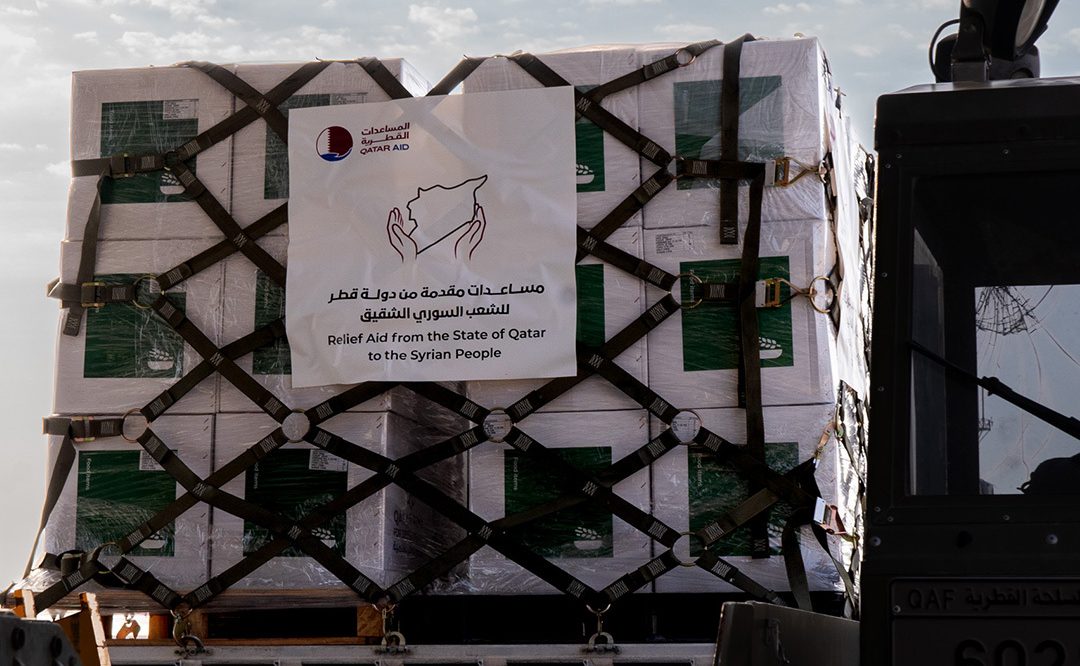
As part of efforts to challenge the stigma surrounding cervical cancer, the Qatar Cancer Society (QCS) is giving women a chance to win gold and diamond jewelry in return for taking an early detection test.
QCS is hosting a number of events throughout January to mark international cervical cancer awareness month, and this year is focusing on encouraging women to get themselves tested.
Cancer and specific tests could be seen by some as taboo in Qatar. Because cervical cancer testing requires going for regular pap smears, many women may shy away from the idea.
Under the campaign Inti Gaddaha … Ifhasi (You Can … Get The Tests), QCS’s events aim to dispel some of the myths and educate women about the need to go for periodic checkups.
Challenging stigma
Cervical cancer is the second most common type of cancer in women worldwide after breast cancer, and the fifth most frequently occurring cancer in women in Qatar.
However, it is curable when found and treated early.
Regular pap tests (every three years) can prevent around 90 percent of cervical cancers, according to information on the QCS website.
Speaking to Doha News, Heba Nassar, health education officer at QCS, said the campaign will include a series of awareness events for women according to their profession, ie for teachers or bank employees.
“Some people are very shy to get the test, but we are trying to get them to understand that it’s nothing embarrassing. They are simple tests which will be helpful to protect them,” Nassar said.
One of the key events in the campaign will be on Jan. 25 at the Grand Hyatt Doha hotel, where a team of health specialists will answer questions from the audience about cervical cancer.
Prior to the awareness day, women are being encouraged to go to get themselves tested.

Those who undergo a pap smear test at Al Hayat Medical Center on Al Wabb will be entered into a draw, with prizes including three pieces of gold and three diamond rings from Damas and Malabar jewelry shops.
“We hope this will be one way to encourage the ladies to do the tests,” Nassar added.
What is it?
Cervical cancer is caused by abnormal growth of the cells in the cervix (lower part of the uterus) and generally affects women between their 20s and 50s.
A large majority of cervical cancers are caused by the human papillomavirus infection (HPV).
There are more than 100 different types of HPV, many of which are harmless. In some women, however, the virus contributes to a process that causes some cells on the surface of the cervix to become cancerous, according to advice on the Sidra Medical and Research Center’s website.
Other major risk factors include smoking, recurrent cervical infections, family history of cervical cancer, having given birth to three or more children and using birth control pills for a long time.

Signs and symptoms include abnormal vaginal discharge or bleeding, pelvic pain and pain during intercourse.
However, the disease often does not produce symptoms until it is advanced, so regular screening is crucial to detect and treat it when it is still in the early stages, experts say.
Prevailing cultural and social values in Qatar and the wider region mean many women do not feel comfortable getting tested, which the QCS campaign is trying to address.
Pap test are recommended for women over the age or 21 or once they become sexually active and should be taken every two to three years, until the age of 65.
Women over the age of 65 years old who have had five previous tests with normal results no longer need to get tested, QCS advises.
The five-minute test can be done in any primary health care clinic and are best taken between the 10th and 14th day of a woman’s monthly cycle.
There is a useful fact sheet on what happens during a pap test, with questions women can ask their doctors and questions the doctors may ask of the patients, on Sidra’s website.
This is not the first time health agencies and authorities in Qatar have launched campaigns to tackle stigmas around cancer.
In mid-2014 the National Cancer Program, a collaboration between the Supreme Council of Health (SCH),Hamad Medical Corp. (HMC) and the Primary Health Care Corp (PHCC), launched a pair of videos featuring well-known personalities in Qatar.
In the films #QatarAgainstCancer and I Pledge to Stand Up to Cancer, they urged local residents to shed the stigma around cancer and “challenge” the disease head-on.
Qatar is not the only country battling taboos around cancer screening and treatment. In recent years, published reports have noted the stigma of cervical cancer in India and Turkey, as well as breast cancer in Pakistan.
Thoughts?







